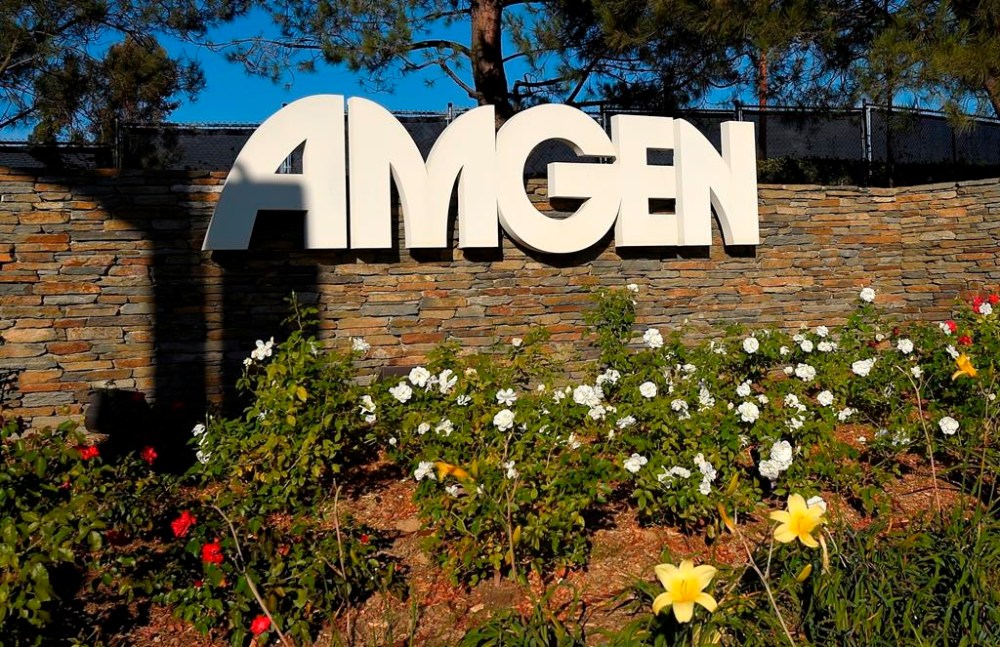Monopoly concerns push FTC to sue to block Amgen’s more than $26B deal for Horizon
Advertisement
Read this article for free:
or
Already have an account? Log in here »
To continue reading, please subscribe:
Monthly Digital Subscription
$0 for the first 4 weeks*
- Enjoy unlimited reading on winnipegfreepress.com
- Read the E-Edition, our digital replica newspaper
- Access News Break, our award-winning app
- Play interactive puzzles
*No charge for 4 weeks then price increases to the regular rate of $19.95 plus GST every four weeks. Offer available to new and qualified returning subscribers only. Cancel any time.
Monthly Digital Subscription
$4.99/week*
- Enjoy unlimited reading on winnipegfreepress.com
- Read the E-Edition, our digital replica newspaper
- Access News Break, our award-winning app
- Play interactive puzzles
*Billed as $19.95 plus GST every four weeks. Cancel any time.
To continue reading, please subscribe:
Add Free Press access to your Brandon Sun subscription for only an additional
$1 for the first 4 weeks*
*Your next subscription payment will increase by $1.00 and you will be charged $16.99 plus GST for four weeks. After four weeks, your payment will increase to $23.99 plus GST every four weeks.
Read unlimited articles for free today:
or
Already have an account? Log in here »
Hey there, time traveller!
This article was published 16/05/2023 (967 days ago), so information in it may no longer be current.
The U.S. is attempting to block the proposed acquisition of Horizon Therapeutics for more than $26 billion by biotech drug developer Amgen on antitrust grounds.
The Federal Trade Commission said Tuesday that the deal, announced in December, would give Amgen unfair leverage to block competition for Horizon medications. The FTC said the deal would entrench Horizon’s monopoly position on treatments for thyroid eye disease and chronic refractory gout.
Amgen said it was disappointed in the agency’s decision but remains committed to completing the deal by mid-December.

The California company said last December that the acquisition would allow it to expand into rare disease treatments.
Horizon Therapeutics PLC, based in Dublin, develops potential treatments for autoimmune and severe inflammatory diseases. Its bestseller, Tepezza, is only approved in the United States and treats eye bulging and double vision from thyroid eye disease.
Amgen plans to expand the use of that drug globally, and company leaders have said they also expect their company’s long-standing history of working with rheumatologists will help grow sales of another Horizon drug, the gout treatment Krystexxa.
The FTC said Tuesday that the deal would allow Amgen to use rebates on its existing drugs to pressure bill payers like pharmacy benefit managers into favoring Tepezz and Krystexxa. The agency said neither treatment has competition, and the deal could give the combined company incentive to “to entrench Tepezza’s and Krystexxa’s monopolies.”
Amgen said the FTC claim on how it might use the medicines “is entirely speculative and does not reflect the real world competitive dynamics behind providing rare-disease medicines to patients.”
“We have been working cooperatively over the past several months to address the questions raised by the FTC’s investigative staff and believe we have overwhelmingly demonstrated that this combination poses no legitimate competitive issues,” the company said in a statement.
Jefferies analyst Akash Tewari also said in a separate note that he didn’t think the FTC’s claim would hold up. But the agency’s move might hamper mergers and acquisitions more broadly.
Shares of Amgen Inc., based in Thousand Oaks, California, slipped 1% Tuesday afternoon to $231.14 while broader indexes were mixed. U.S.-traded shares of Horizon also fell.

